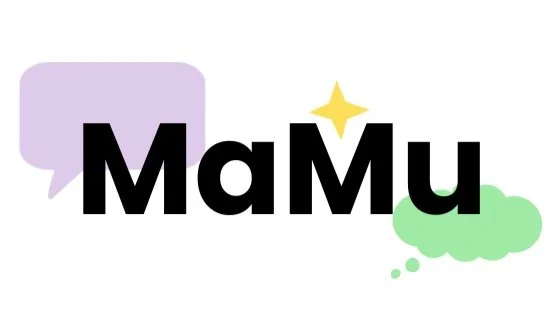Who Are We?
MaMu is a mission-driven team of educators, technologists, and advocates building tools that celebrate the brilliance of multilingual, neurodiverse learners and empower those who support them.
Our Mission
MaMu empowers multilingual and neurodiverse learners by equipping educators and families with technology that simplifies support, removes barriers, and builds community. We create tools that foster feedback and advocacy, celebrate individuality, and ensure every student can learn, grow, and thrive regardless of their background.
What does MaMu stand for?
MaMu stands for Marvelous Multilinguals or “Maravillas Multilingües”, in alignment with our belief that all students and teachers are brilliant.
Our Vision
A future where educators create connected, barrier-free learning ecosystems and lead thriving support networks for multilingual and neurodiverse learners, unlocking every student’s potential.
The Need
EDUCATORS
Educators working with multilingual and neurodiverse learners navigate a uniquely demanding role, and too often, they’re expected to do it without the right tools. Compared to general education teachers, special education educators take on ~11 additional responsibilities per week—and those serving bilingual special education students manage ~24 more, spending over 19 additional hours weekly on lesson adaptation, compliance, translation, and communication. These teachers must be literacy specialists, trauma-informed advocates, legal coordinators, multilingual communicators, and instructional designers—while managing compliance, supporting families, and adapting lessons across subjects for students with complex needs. The weight is unsustainable: each year, approximately 46,000 SPED teachers leave the field, while only 30,000 new ones are trained, resulting in a deficit of 16,000 teachers annually, leaving students without stable support.
STUDENTS
While nationally, only ~71% English Language Learners (ELLs) and Special Education (SPED) students graduate on time compared to 86% of students overall, edtech and interventionists rarely provide adequate interventions that address the intersecting challenges these students face. Most recent federal and state estimates indicate that between 400,000 and 500,000 newly arrived children have entered U.S. K–12 public schools over the last five years, and dropout rates for ELLs remain significantly higher than for their peers. But, supports remain siloed, tackling issues like trauma, language access, interrupted education, or adolescence in isolation—ignoring how these factors overlap and intensify disengagement. Students also currently have limited power in designing their education, when their feedback should be central to learning.
There are over 5.3 million English Learners (ELs) in U.S. public schools—making up 10.6% of all K-12 students, a figure that continues to grow. At the same time, 15% of all students receive special education services under IDEA, yet the number of qualified bilingual and SPED educators remains critically low.
FAMILIES
Ultimately, this means families and students are navigating an overwhelming and inequitable system. Non-English-speaking families face language, cultural, and procedural barriers that hinder their access to support—especially in navigating complex IEP processes, securing accommodations, and obtaining consistent communication from schools.
This is a massive, underserved population: students with untapped brilliance, families eager to advocate, and educators drowning in responsibilities without the technology to meet the moment.
MaMu was born inside a Title I multilingual special education program where needs are high, tools are inadequate, and teachers are expected to do everything without systemic support. MaMu isn’t just a platform—it’s a support system. A way to connect students, families, and educators at one of the most underserved intersections in U.S. public education: multilingualism, neurodiversity, and migration. We believe in tools that simplify complexity, differentiate meaningfully, and build networks of support—so every learner can be seen, supported, and celebrated.
📌 Sources: Learning Policy Institute, 2017; National Center for Education Statistics (NCES), 2023; 1: NCES Fast Facts: English Learners, 2023; 2: U.S. DOE, EDFacts/IDEA data, 2023; Migration Policy Institute, 2020; 1: EdWeek: What Graduation Rates for English Learners Look Like; 2: NCES: English Learners in Public Schools; 4: NCES: Students With Disabilities; 5: K12 Dive: English learner grad rates rose steadily prior to the pandemic; 6: EdWeek: The Complex Factors Affecting English-Learner Graduation Rates; 8: Chalkbeat: Diplomas for NYC's English language learners surged...Our Team
Sofía María Bosch is a bilingual special education teacher, reading interventionist, department head, and pilot program lead at public school J.H.S. 050 John D. Wells in Brooklyn, NY. Sofía is also the founder and CEO of EdTech startup MaMu, an education company passionate about building a toolkit and feedback loops for those who support diverse learners (neurodiverse + multilingual).
Her work at MaMu is incredibly personal. Sofía is proudly Mexican-Spanish-American and was a kid who moved every two years, living in 5 countries and learning new languages. She also had an undiagnosed learning disorder until her senior year of high school. She felt slow, incapable, and behind throughout her entire K-12 experience. Similarly to many of her students (and student-teachers), Sofía never felt equipped to thrive in our typical classroom.
That’s why she is a firm believer in the brilliance of every student, multilingualism, elevating community voices, innovation in education, creating resources, and the power of storytelling. Before becoming a teacher, Sofía worked in journalism, community organizing, research/project management, startups, 21st-century skills education (financial, sexual), and design-thinking roles. She has degrees from the University of Southern California, the City College of New York, and the Harvard Graduate School of Education. Sofía is also on the board for USC Troy Camp in Los Angeles.
When she's not teaching, you can find her writing poetry, reading, at the gym, dancing salsa, or outdoors. She also spends time cooking and exploring new places to eat with her husband, who is from Venezuela.
Interested in working at MaMu?
These are our currently available positions:
Project Manager (Part Time/Contract)
Internships
Please email your resume and a cover letter to sbosch@mamuedu.com.






